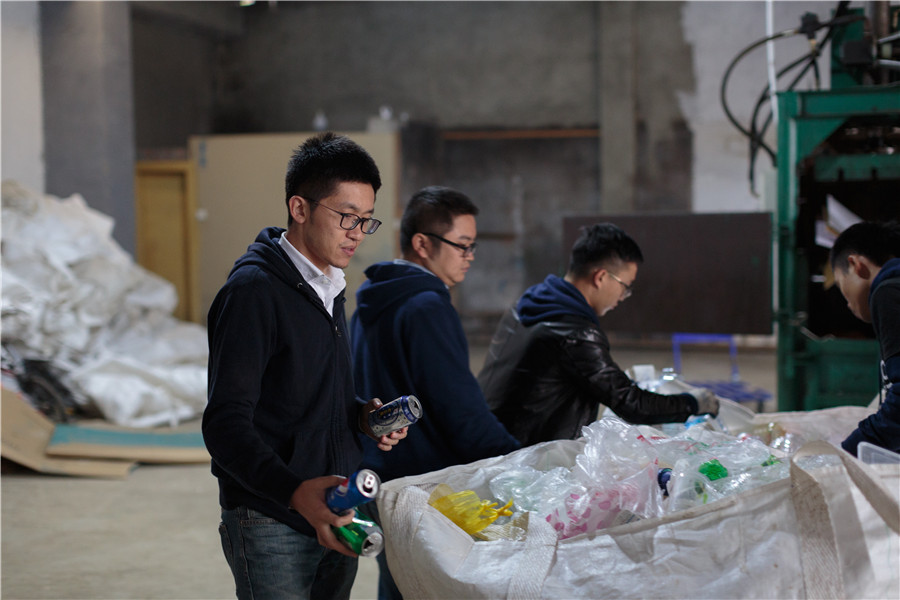Garbage recycling picks up among students in Chengdu


According to a research by the Shanghai Academy of Social Sciences from 2015, one-third of Chinese residents do not separate recyclable trash. Consequently, this leads to the low recycling of municipal waste as garbage companies have to burn or bury recyclable garbage along with the content that cannot be recycled.
Last year, the State Council, China's cabinet, announced a plan that sets the goal of recycling 35 percent of all garbage by 2020.
Wang felt he could contribute to this. So he designed a rubbish bag to collect recyclable garbage.
Each bag his company provides comes with a distinct QR code. And by scanning the code, users can register for such an item on WeChat, a popular Chinese messaging app.
When a bag from the company is returned to Aobag, its owner will know the weight of the trash and get a share of the money earned from it on WeChat.
Now, each class at the Experimental Primary School of Sichuan Normal University has an account.
So far, the 2,500 students at the school have made 16,500 yuan ($2,600) from 16,300 kilograms of trash, mostly paper and plastic, according to Aobag.
Recycling this amount of garbage means saving 250 trees or reducing the emission of carbon dioxide by 28 tons, says Aobag.
One heartening feature of the recycling exercise is the enthusiasm of the students' community.
Many of the students in boarding schools involved in the program now cut open used milk cartons, wash them clean and then air-dry them in their classrooms.




































